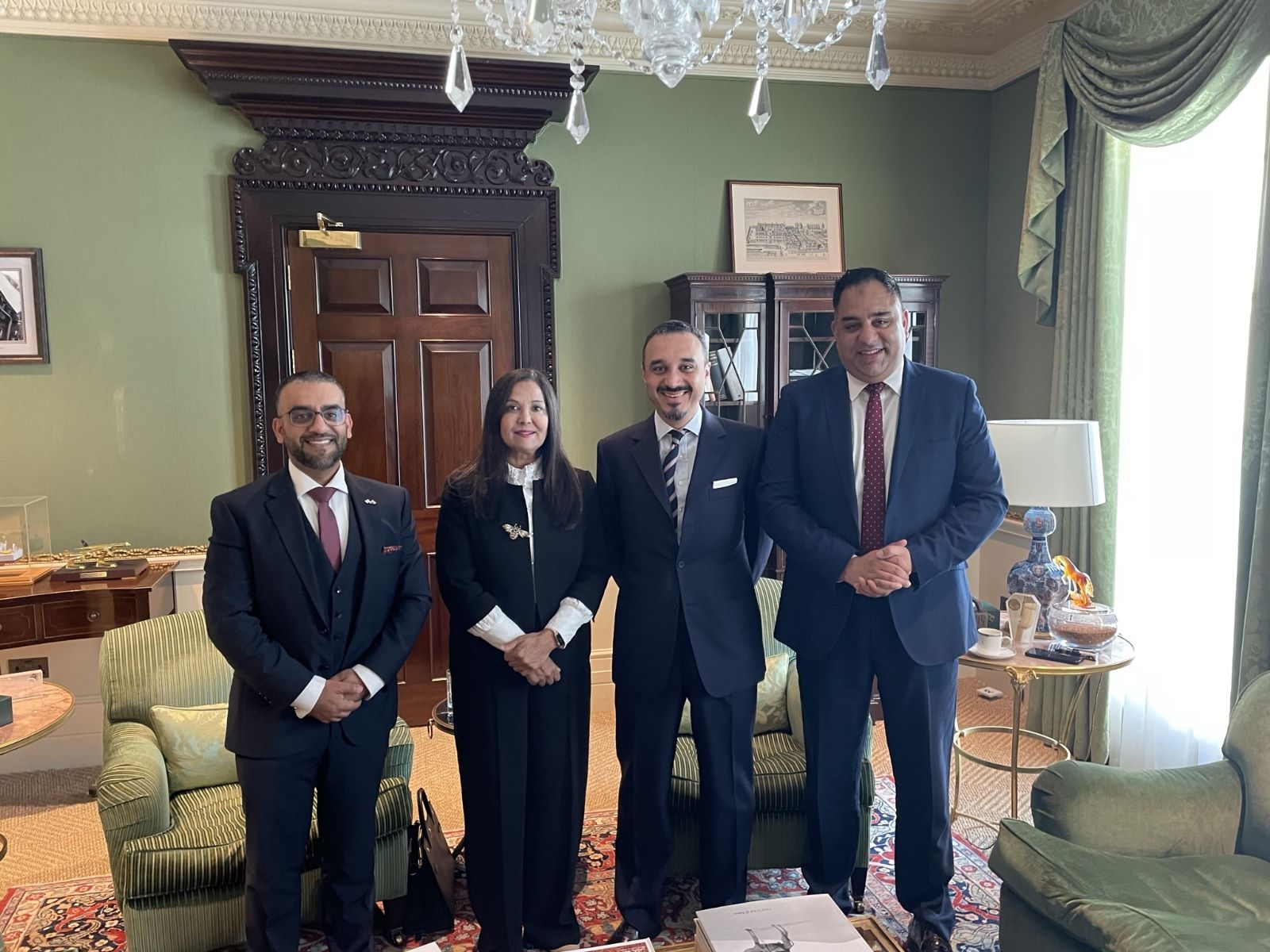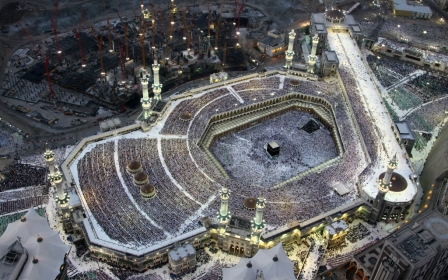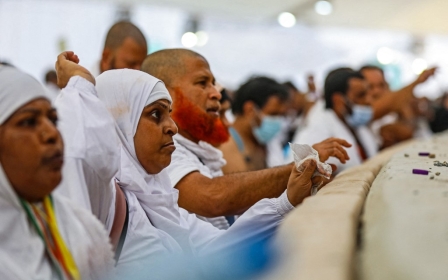Hajj: UK quota cut to create fairer system, Saudi ambassador tells MPs

Saudi Arabia’s ambassador to the UK defended Riyadh’s decision to reduce the number of Hajj places given to western countries during a meeting earlier this week with British MPs.
Members of the All Parliamentary Party Group (APPG) on Hajj and Umrah met Prince Khalid bin Bandar Al-Saud in London on Wednesday to discuss the reduced number of places for British pilgrims on this year's Hajj, and other issues surrounding the new Nusuk booking system.
Last week, the APPG said it would lobby the ambassador for more Hajj places after the Ministry of Hajj and Umrah reduced the number of places allocated to the UK from more than 25,000 before the Covid-19 pandemic to approximately 3,600.
The ministry also introduced a new booking system, Nusuk, for pilgrims from mostly western countries hoping to undertake Hajj this year.
Some users who registered and tried to book places through the new system have complained of paying thousands of pounds for tour packages without receiving any confirmation of their booking, or receiving messages informing them that their booking has been cancelled.
New MEE newsletter: Jerusalem Dispatch
Sign up to get the latest insights and analysis on Israel-Palestine, alongside Turkey Unpacked and other MEE newsletters
This new system has also sidelined travel agencies - which have traditionally organised Hajj packages for western pilgrims - for the second year in a row, after the organisation of the pilgrimage was outsourced last year by the ministry to another company, Motawif.
In a statement on Friday, the APPG said the Saudi ambassador had defended the ministry's decision to reduce quotas for some countries on the grounds that it was trying to create a fairer Hajj system.
“His excellency sympathised that certain countries (including the UK) had in previous years been allocated more Hajj quotas compared to other countries,” the APPG said.
'He emphasised that… a formula of "one pilgrim per thousand" of the Muslim population of a country was being applied'
– British parliamentary group
“He emphasised that the Ministry of Hajj and Umrah had a challenge to apply a fair Hajj quota allocation system across the world, and for this reason, a formula of ‘one pilgrim per thousand’ of the Muslim population of a country was being applied.”
But the APPG said the ambassador had told MPs that he would look into ways to increase the quota for the UK.
He also said a member of the Nusuk team had arrived at the embassy to help resolve booking issues.
The Council of British Hajjis (CBHUK) welcomed the ambassador’s assurances and said some more places had opened up on Nusuk for British pilgrims after the MPs' meeting with the ambassador.
Members of the APPG on Hajj and Umrah present at the meeting on Wednesday with the Saudi ambassador included its chair, Yasmin Qureshi MP, vice-chair Imran Hussain MP, and Rashid Mohammed Mogradia from the CBHUK.
Hussain welcomed the commitment to addressing issues faced by British Hajj pilgrims, and said: "The issues faced by many Muslims in the UK during Hajj this year have been very troubling and I’m therefore pleased that following the APPG’s delegation to Saudi Arabia earlier this year, where we raised our concerns with ministers and officials, the ambassador has confirmed he’ll be working to act on the findings of our delegation.”
Hajj packages 'sold out'
Earlier this week, Middle East Eye reported that Hajj places had "sold out" for British Muslims hoping to fulfil the pilgrimage.
Nusuk confirmed on Tuesday that all the slots for UK Muslims had been allocated and said the "country capacity" for Britain was full.
Last week, MEE also revealed that the APPG had warned that the reduced Hajj quota for the UK would lead to British Muslims waiting between "five to 10 years" before they can go on the Hajj.
According to the minutes of an APPG meeting from February, Saudi officials told the MPs that new quotas for the UK and other western countries would align with Muslim-majority countries, which have historically been allocated one place per thousand Muslims in the population.
The quota figure for Muslim-majority countries can vary depending on the arrangements between Saudi Arabia and individual countries.
Whether the Saudi government intends to revise the number annually, or what data it will draw on to calculate how many Muslims would be eligible to go from western countries, remains unclear.
Middle East Eye delivers independent and unrivalled coverage and analysis of the Middle East, North Africa and beyond. To learn more about republishing this content and the associated fees, please fill out this form. More about MEE can be found here.




